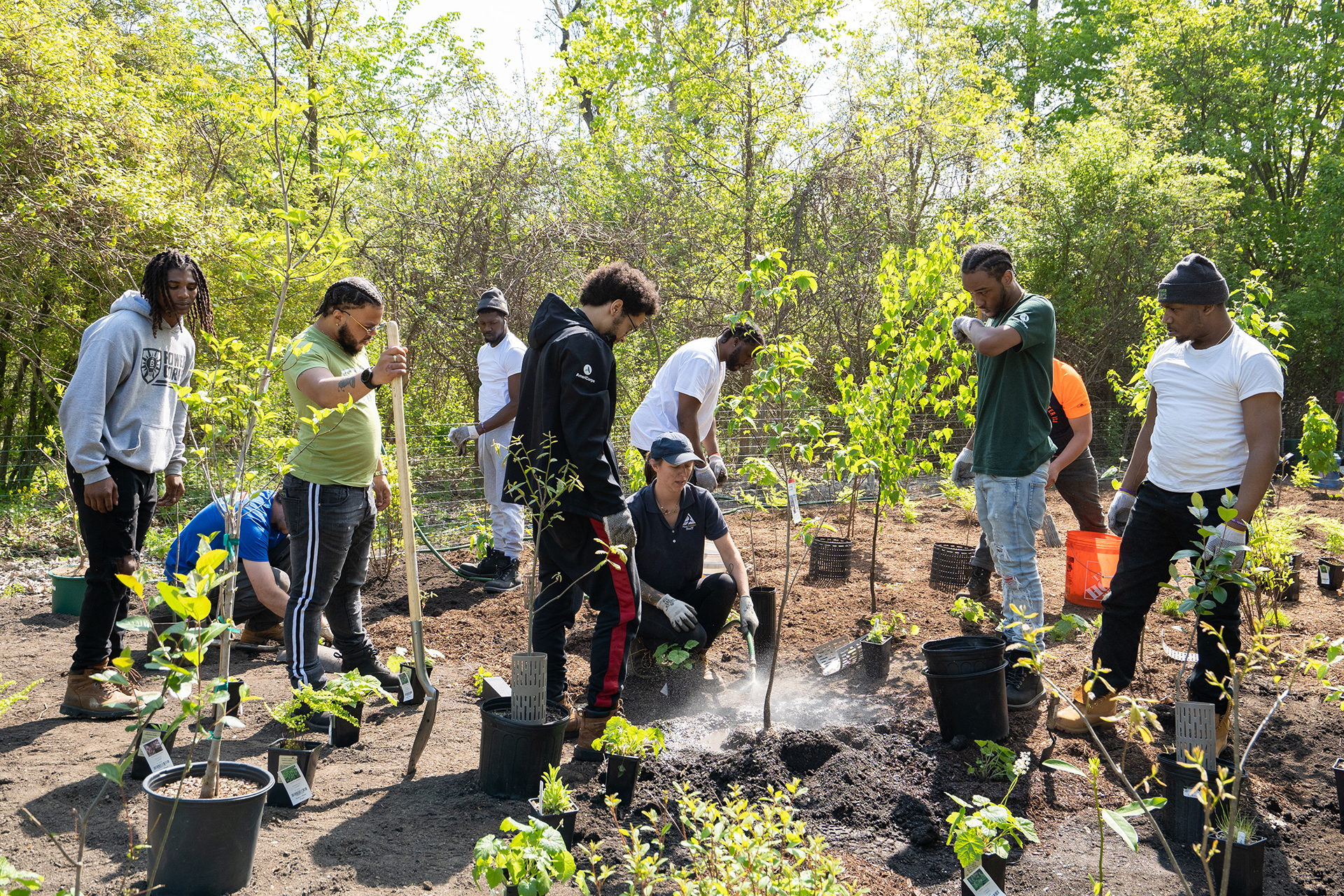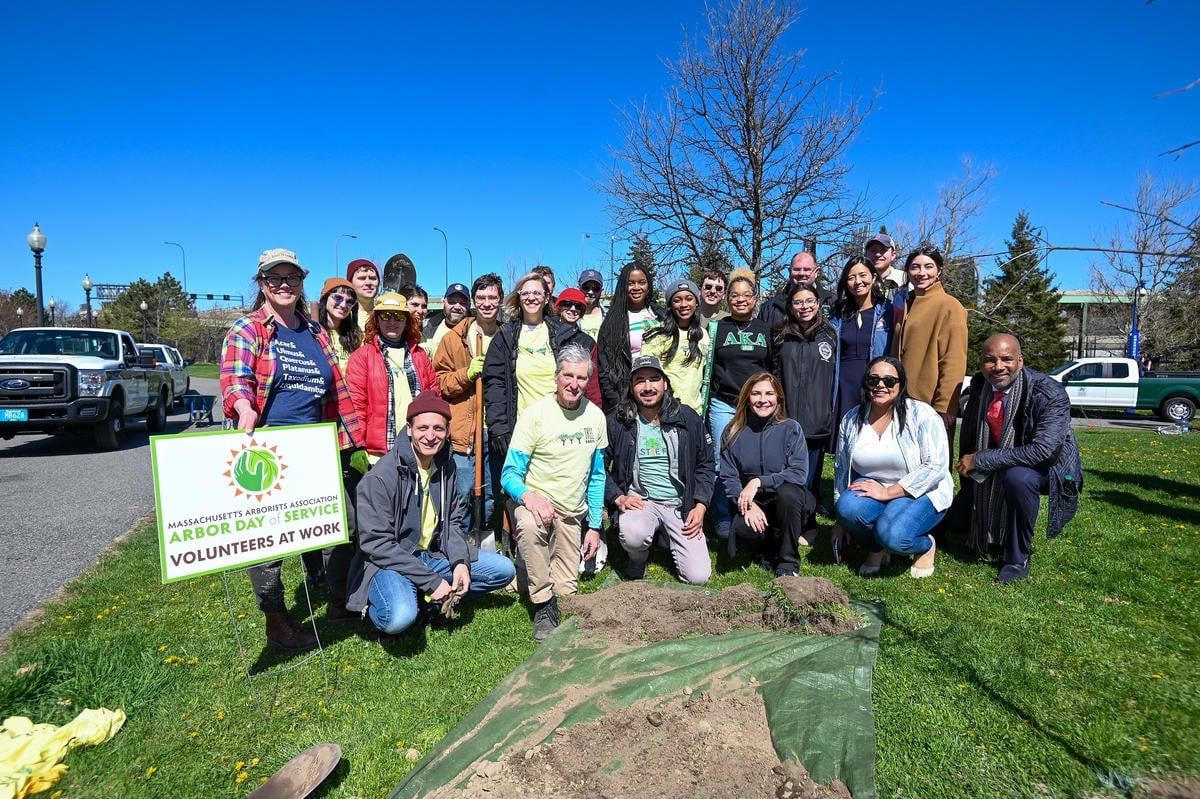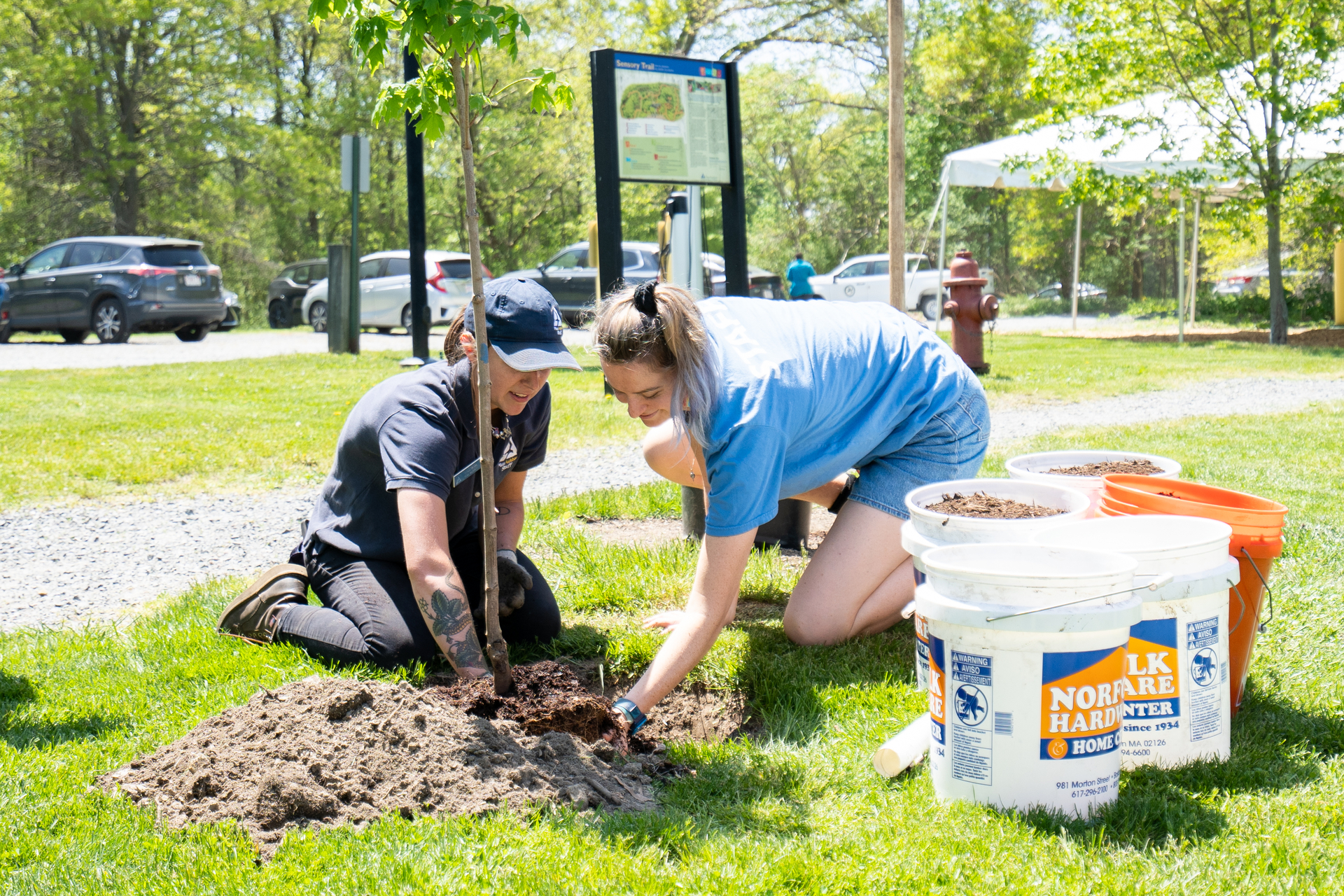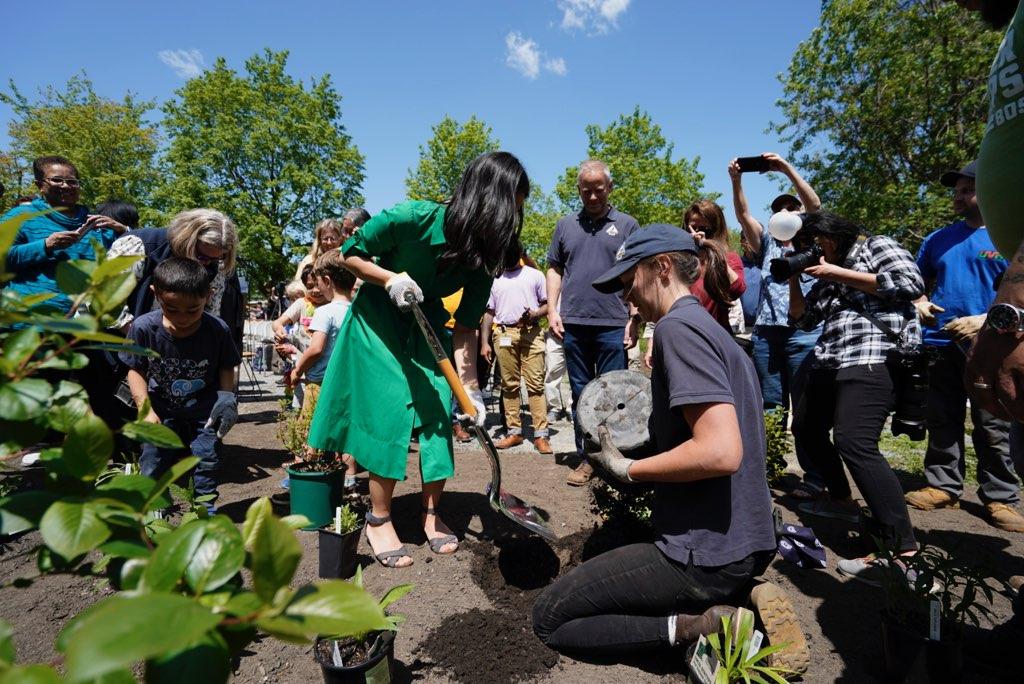Nature in the City
Nature in the City: Boston Tree Alliance
Created by the City of Boston’s Cabinet of Environment, Energy, and Open Space, the Boston Tree Alliance aims to equitably grow the urban tree canopy in Boston through tree planting and care on privately-owned land in environmental justice communities in Boston.
Boston Mayor Michelle Wu tapped Mass Audubon to lead a coalition of community-based organizations and nonprofits that work to co-create best practices in urban forestry and connect with private landowners.
Thanks to over $3 million in federal grant funding (via the American Rescue Plan Act and an Urban and Community Forestry Grant from the Inflation Reduction Act), the Alliance coalition developed a set of goals to guide the work through 2029.
Program Goals
Address private land tree canopy loss
The 2022 Boston Urban Forest Plan found that 60% of Boston’s existing tree canopy is located on private land (residential, commercial, industrial, and institutional). But despite tree canopy remaining steady citywide between 2014-2019, the canopy loss that did occur happened mostly on residential land. Boston’s Urban Forestry Division and other public agencies have limited ability to directly address this canopy loss on private land.
Equitably grow the urban forest
The Urban Forest Plan found that Boston’s tree canopy is not equitably distributed across all neighborhoods – instead, many neighborhoods with the fewest trees correspond to patterns of historic marginalization and disinvestment.
This program focuses efforts on tree planting in historically marginalized areas to address this inequity, and to increase access to trees and their benefits for Boston’s most vulnerable populations. As a starting point, the City established priority zones that highlight environmental justice neighborhoods with low canopy coverage, high heat events, and historic redlining.
Fund community-based organizations and nonprofits to plant trees
Community-based organizations and nonprofits can apply for grant funding from the Alliance for tree planting projects. Building new partnerships and supporting the ongoing efforts of organizations involved in urban forestry in Boston will be essential for the Alliance.
Education and engagement
Public education and materials co-created with urban forestry practitioners will provide best practices for tree planting and maintenance to increase long-term tree survival. In addition, the Alliance will develop training materials for different audiences, such as renters and large landowners, to increase public awareness of the value of trees in the urban environment.
Ways to Get Involved
To learn more about the Boston Tree Alliance, please visit Boston Tree Alliance Program | Boston.gov.
Latest News
See all newsQ&A With Tree Eastie's Bill Masterson, Boston Tree Alliance partner
Keep ReadingBoston Tree Alliance Releases First Round of Funding
Keep ReadingMass Audubon Chosen by Mayor Wu to Lead New Program Planting Trees on Private Land to Bolster City’s Tree Canopy
Learn More





